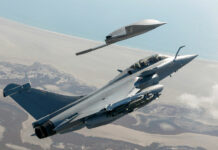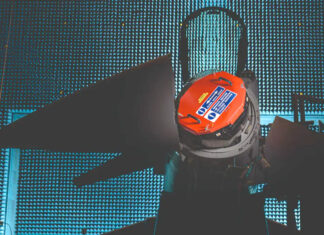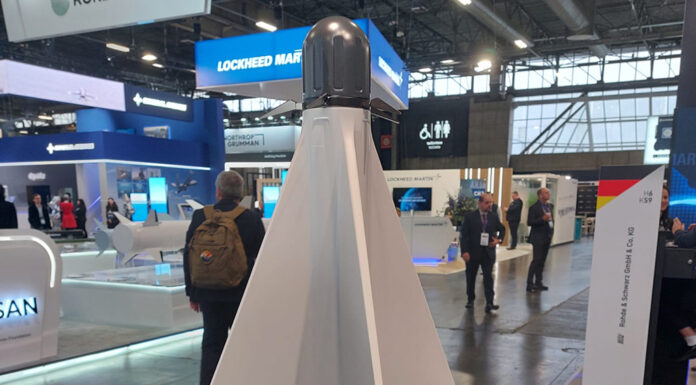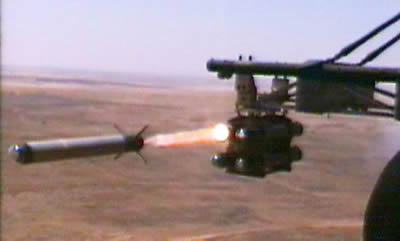
Israel Aerospace Industries (IAI) was recently awarded a ‘substantial contract’ for the delivery of a ‘large number’ of LAser Homing ATtack (LAHAT) missile systems, to be used as a primary weapon system combat helicopters, the company announced yesterday. The land based variant of the missile has already been selected to equip the Indian Arjun MKII in its gun-fired configuration.
The contract (the awarding country was not disclosed) includes the integration and necessary modifications supporting the new capability. The system comprises multiple quad-pack launchers (up to 4 per helicopter), the MOSP-3000 (Multi-mission Optronic Stabilized Payload) day/night observation, targeting and designation system, a firing computer, avionics and multifunction displays – all manufactured by IAI. The installation and testing of the systems on board the helicopters will also be performed by IAI.
The LAHAT missile is an advanced lightweight guided missile with pinpoint accuracy at long ranges (> 8km). The missile is carried in a quad-pack launcher that weighs about 75 kg, including four missiles, canisters and launcher. The complete system comprising four, eight or 16 missiles, can be installed on different types of helicopters in addition to existing systems. The system significantly improves the combat capability of current and new attack, assault and utility helicopters, by extending missile range, improving accuracy and increasing the weapon quantity carried by each platform.
Additional capabilities include Line Of Sight (LOS) and Non-Line of Sight (NLOS) firing, a small launch signature and an extremely light launcher. This enables the helicopter to carry a sufficient number of missiles (8-16), substantially enhancing its firepower, while maintaining its maneuverability and endurance even at high temperatures and high altitudes.
Originally developed as a gun-launched missile, LAHAT has already been demonstrated to be launched from 105 and 120mm gun barrels, as well as from rail launchers on combat vehicles, small patrol boats, special operations vessels and dismounted ground launchers.
[nonmember]More insight available for Defense-Update subscribers[/nonmember]
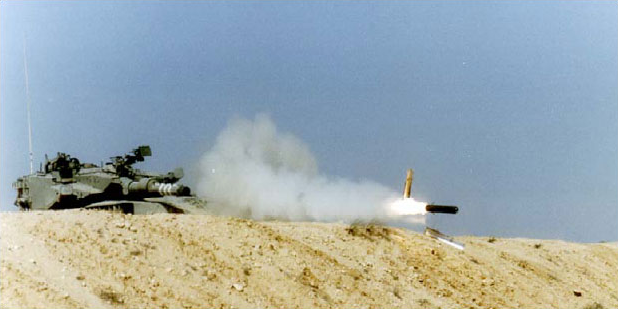
[ismember]Over two decades the LAHAT missile went through an extensive test and evaluation campaign, but yielded limited success in actual sales. The LAHAT was Conceived in the mid 1990s as a revolutionary weapon system, enabling Israeli Merkava Mk 2 Main Battle Tanks to engage targets at distances over twice their combat range, using their 105mm cannons. As the IDF moved toward 120mm guns for its Merkava MkIII and MkIV tanks, LAHAT also received an oversized sabot, fitting the larger bore diameter.
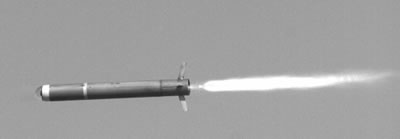
One of the most likely user for the missile was India, seeking to acquire a 120mm gun-fired missile for its indigenous Arjun, achieving the same capability the Russian T-72 and T-90 tanks offered with the 125mm 9M120 ‘Svir’ laser beam riding missile. A series of test firings form Arjun tank were completed in 2005 and another series is planned for late 2013, testing the missile with the improved Arjun II. LAHAT was also tested with the Leopard II Mk4 during a demonstration campaign in Germany in 2006.
In the late 1990s and mid 2000s, with the IDF and other military forces began focusing on ‘aerial dominance’, the LAHAT missile was adapted to airborne platforms, with the development of the lightweight Quad Launcher and helicopter weapon system. By the mid 2000s the missile was tested on several airborne platforms, including assault, scout and attack helicopters such as the AH-1 Cobra, Mi-8/17, MD530 and the Indian Advanced Light Helicopter (ALH Druhv). The current contract is likely to be the first production of the missile. [/ismember]



